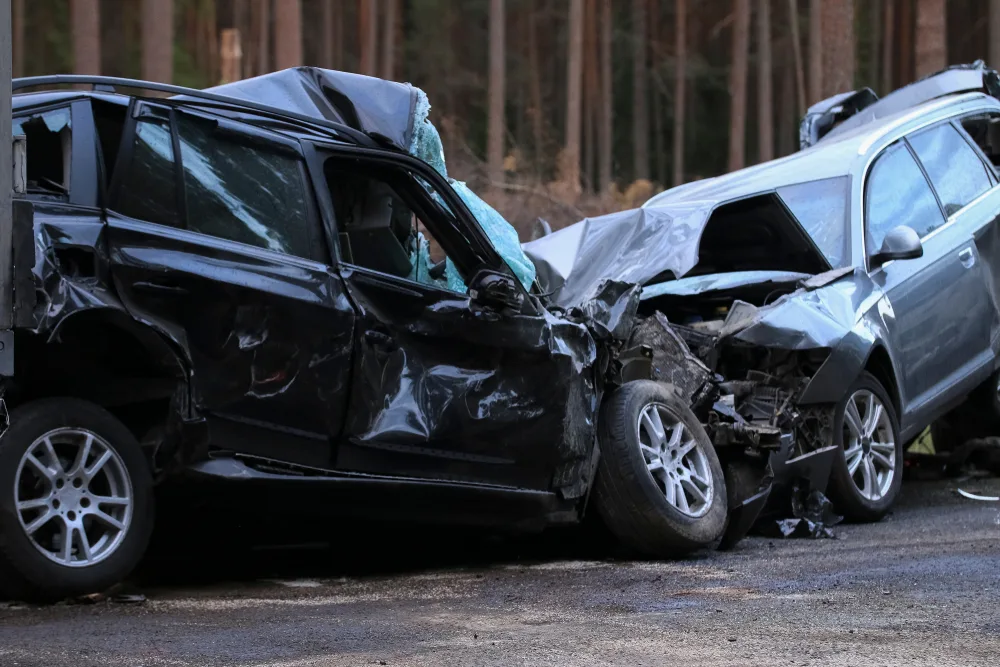Car accidents are one of the most common and devastating occurrences on modern roads. Every year, millions of people worldwide are involved in motor vehicle crashes, leading to injuries, loss of life, financial setbacks, and emotional trauma. While advancements in automotive technology and safety laws have reduced fatalities over time, car accidents remain a global issue that affects individuals, families, and societies at large.
In this article, we will explore what car accidents are, their common causes, their impact on victims and communities, and the measures that can help reduce their occurrence.
What Is a Car Accident?
A car accident, also known as a traffic collision or road crash, happens when a vehicle collides with another vehicle, pedestrian, animal, object, or road obstruction. These accidents can range from minor fender-benders with little damage to catastrophic crashes resulting in severe injuries or fatalities.
Car accidents may occur in different environments such as highways, rural roads, urban intersections, or parking lots. Regardless of where they occur, they disrupt lives and leave lasting consequences.
Common Causes of Car Accidents
Car accidents rarely occur without reason. In most cases, they are the result of human error, environmental conditions, or mechanical issues. Some of the most common causes include:
1. Distracted Driving
One of the leading causes of car accidents today is distracted driving. With the widespread use of smartphones, many drivers text, make calls, or use apps while driving. Even a few seconds of distraction can result in a devastating crash.
2. Speeding
Driving above the speed limit reduces a driver’s ability to react in time to avoid collisions. High-speed accidents are often more severe due to the increased force of impact.
3. Drunk Driving
Alcohol impairs judgment, slows reaction times, and reduces coordination. Despite awareness campaigns, drunk driving continues to cause countless accidents each year.
4. Reckless or Aggressive Driving
Tailgating, frequent lane changes, ignoring traffic signals, and road rage contribute to accidents caused by aggressive driving behaviors.
5. Weather Conditions
Rain, fog, ice, and snow create hazardous road conditions. Reduced visibility and slippery roads often lead to crashes when drivers fail to adjust their driving to the environment.
6. Mechanical Failures
Faulty brakes, tire blowouts, or engine problems can lead to accidents. Regular maintenance helps minimize the risk of vehicle-related issues.
7. Fatigue
Drowsy driving is as dangerous as drunk driving. Falling asleep at the wheel, even for a moment, can cause catastrophic accidents.
Types of Car Accidents
Car accidents vary in nature and severity. Some common types include:
- Rear-End Collisions: When one vehicle crashes into the back of another, often caused by tailgating or sudden stops.
- Head-On Collisions: Among the most fatal, these occur when two vehicles collide front-to-front.
- Side-Impact (T-Bone) Accidents: Common at intersections, they occur when one car crashes into the side of another.
- Rollover Accidents: These often involve SUVs or trucks and can be triggered by sharp turns, high speeds, or collisions.
- Multi-Vehicle Pileups: Typically occurring on highways, these involve several vehicles and can cause massive destruction.
The Impact of Car Accidents
Car accidents leave behind a trail of consequences that extend far beyond the crash site.
1. Physical Injuries
Victims may suffer from minor cuts and bruises to life-threatening conditions like traumatic brain injuries, spinal cord damage, or broken bones. Recovery can take weeks, months, or even years.
2. Emotional and Psychological Trauma
Survivors often deal with anxiety, depression, or post-traumatic stress disorder (PTSD). Witnessing or experiencing a car crash can leave deep emotional scars.
3. Financial Costs
Accidents result in significant financial burdens, including medical expenses, car repairs, legal fees, and loss of income due to injury or disability.
4. Loss of Life
Tragically, many accidents result in fatalities, leaving families devastated and communities grieving.
5. Societal Impact
Beyond individuals, car accidents burden healthcare systems, increase insurance premiums, and disrupt economic productivity.
Preventing Car Accidents
While accidents cannot always be avoided, many can be prevented with responsible behavior and awareness. Here are some preventive measures:
1. Practice Safe Driving Habits
Obey speed limits, avoid distractions, and remain alert at all times. Defensive driving—anticipating potential hazards—can greatly reduce accident risks.
2. Avoid Impaired Driving
Never drive under the influence of alcohol, drugs, or medication that impairs judgment. Always designate a sober driver or use ride-sharing services.
3. Maintain Your Vehicle
Regular inspections of brakes, tires, lights, and steering systems ensure your car is roadworthy and reduces mechanical failure risks.
4. Adjust for Weather Conditions
Slow down during rain, fog, or snow. Use headlights in low visibility and maintain a safe following distance.
5. Rest Before Driving
Ensure you are well-rested before long drives. Take breaks every few hours to avoid fatigue.
6. Follow Traffic Laws
Respecting road rules, signals, and speed limits ensures harmony on the road and prevents unnecessary accidents.
Legal Aspects of Car Accidents
When accidents occur, legal procedures come into play. Depending on the region, drivers may need to:
- Report the accident to the police.
- Exchange insurance and contact information with other parties involved.
- Seek compensation for damages or medical expenses through insurance claims or legal action.
Victims may hire lawyers to handle disputes, especially in cases of negligence or severe injury. Understanding local traffic laws and insurance policies is crucial for protecting one’s rights.
How to Respond After a Car Accident
If you find yourself in an accident, here are key steps to follow:
- Ensure Safety: Move to a safe location if possible and check for injuries.
- Call Emergency Services: Contact police and medical assistance immediately.
- Document the Scene: Take photos, note weather and road conditions, and gather witness details.
- Exchange Information: Share names, contact details, and insurance information with the other driver.
- Seek Medical Attention: Even if injuries seem minor, a medical evaluation is important.
- Contact Insurance Provider: Report the accident promptly for claims processing.
Conclusion
Car accidents are unfortunate realities of modern life, but understanding their causes and consequences can help us prevent them. Most crashes stem from human error, meaning they are largely avoidable through responsible behavior, safe driving habits, and proper vehicle maintenance.
While laws, technology, and infrastructure improvements play crucial roles in reducing accidents, the ultimate responsibility lies with drivers. By staying alert, avoiding distractions, and respecting road safety measures, we can save lives, reduce injuries, and create safer roads for everyone.
Car accidents may be sudden, but their impact is lasting. Awareness and prevention remain our strongest tools in combating this global issue.

